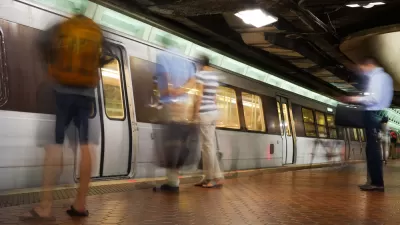Observers express cautious optimism as countries come together on climate goals, but developing nations say they need more support to mitigate the impacts of climate change already in progress.

David Knowles and Ben Adler describe some key takeaways from the COP26 climate conference, which COP26 President Alok Sharma called a "fragile win" for countries seeking to mitigate climate change and slow global warming.
Activists express concern about the nonbinding nature of the pledges made at the conference and the revelation that some countries have been misreporting their emissions data, throwing reductions goals into question.
Developing nations and activists also remain concerned that climate finance is disproportionately tilted toward measures to help developing nations lower emissions — something that most benefits rich countries, since it lowers climate change — and not for preventing, or simply being reimbursed for damage from climate change impacts that are already happening or will be soon.
Yet despite the lack of an enforcement mechanism, Knowles and Adler write that advocates remain hopeful that the conference yielded some promising results that could move the needle on reducing greenhouse gas emissions and keeping global warming below 1.5 degrees Celsius, with over 130 countries pledging to reach net-zero emissions by 2050. Some countries signed onto 'side deal' agreements to cooperate on climate change goals, while all participants agreed that eliminating fossil fuels and ending deforestation should be at the forefront of their efforts. The conference also established rules for international carbon markets that should close loopholes and implement more rigorous measurement mechanisms.
FULL STORY: 5 takeaways from the Glasgow climate change conference

Alabama: Trump Terminates Settlements for Black Communities Harmed By Raw Sewage
Trump deemed the landmark civil rights agreement “illegal DEI and environmental justice policy.”

Study: Maui’s Plan to Convert Vacation Rentals to Long-Term Housing Could Cause Nearly $1 Billion Economic Loss
The plan would reduce visitor accommodation by 25% resulting in 1,900 jobs lost.

Planetizen Federal Action Tracker
A weekly monitor of how Trump’s orders and actions are impacting planners and planning in America.

Waymo Gets Permission to Map SF’s Market Street
If allowed to operate on the traffic-restricted street, Waymo’s autonomous taxis would have a leg up over ride-hailing competitors — and counter the city’s efforts to grow bike and pedestrian on the thoroughfare.

Parklet Symposium Highlights the Success of Shared Spaces
Parklets got a boost during the Covid-19 pandemic, when the concept was translated to outdoor dining programs that offered restaurants a lifeline during the shutdown.

Federal Homelessness Agency Places Entire Staff on Leave
The U.S. Interagency Council on Homelessness is the only federal agency dedicated to preventing and ending homelessness.
Urban Design for Planners 1: Software Tools
This six-course series explores essential urban design concepts using open source software and equips planners with the tools they need to participate fully in the urban design process.
Planning for Universal Design
Learn the tools for implementing Universal Design in planning regulations.
Caltrans
Smith Gee Studio
Institute for Housing and Urban Development Studies (IHS)
City of Grandview
Harvard GSD Executive Education
Toledo-Lucas County Plan Commissions
Salt Lake City
NYU Wagner Graduate School of Public Service





























